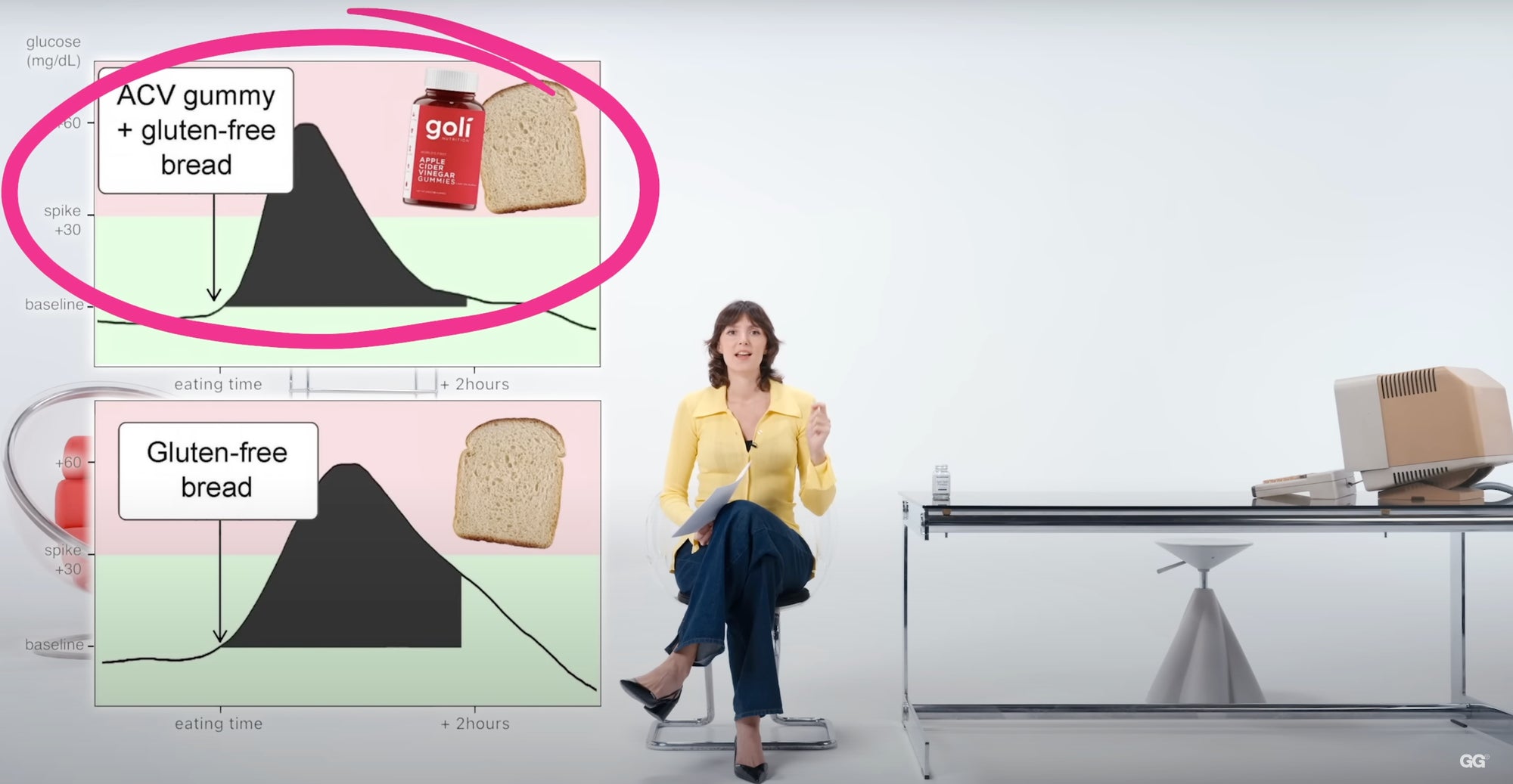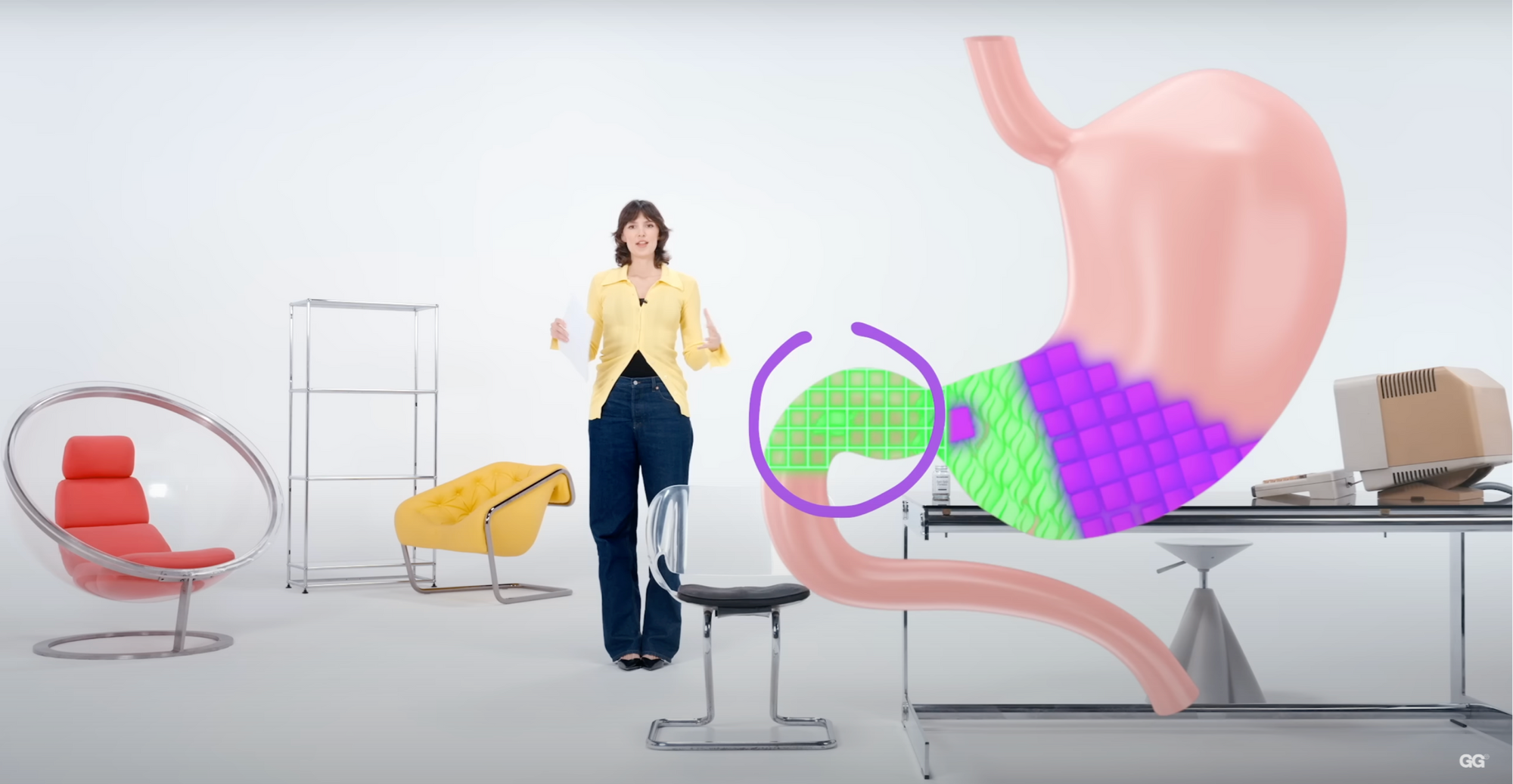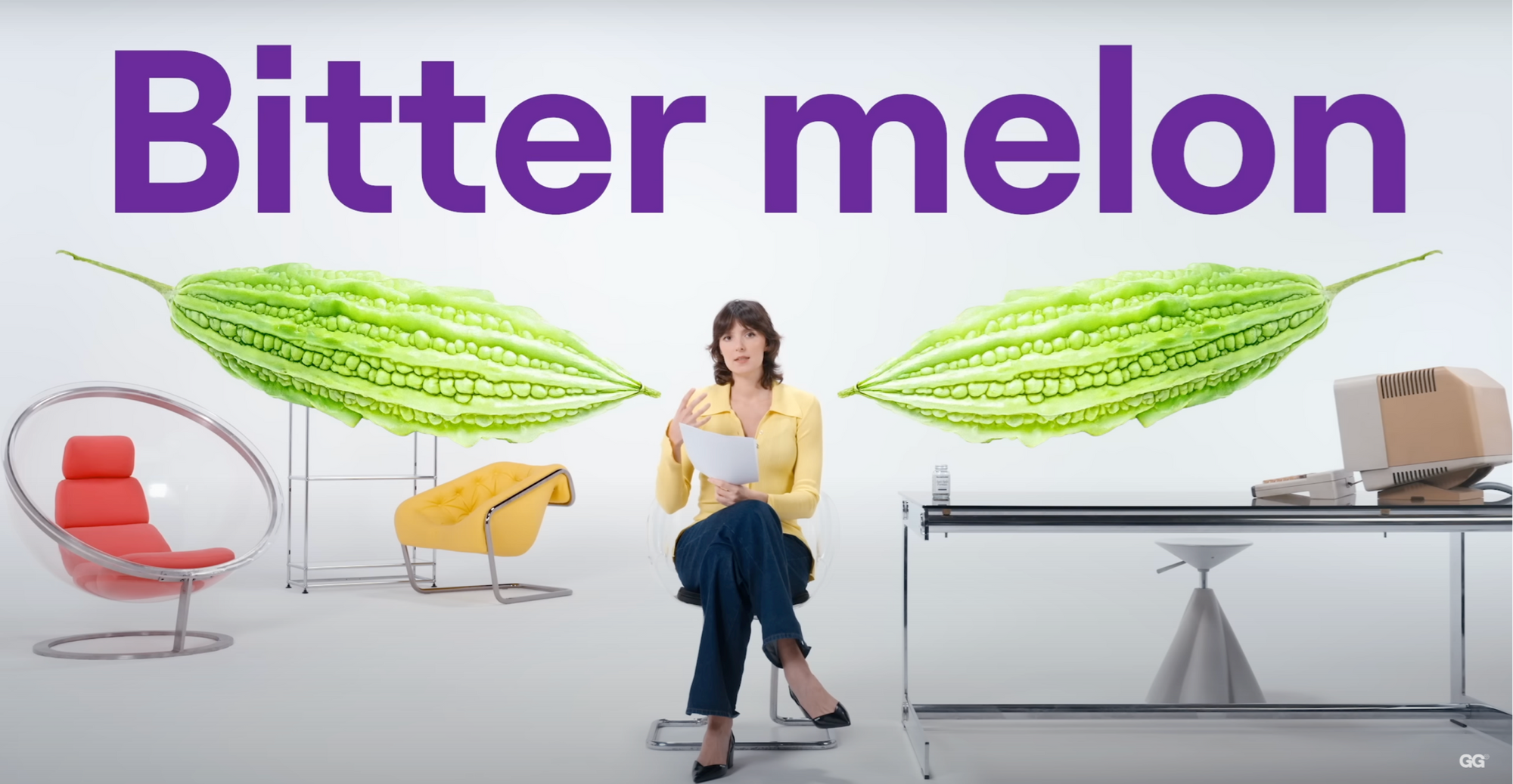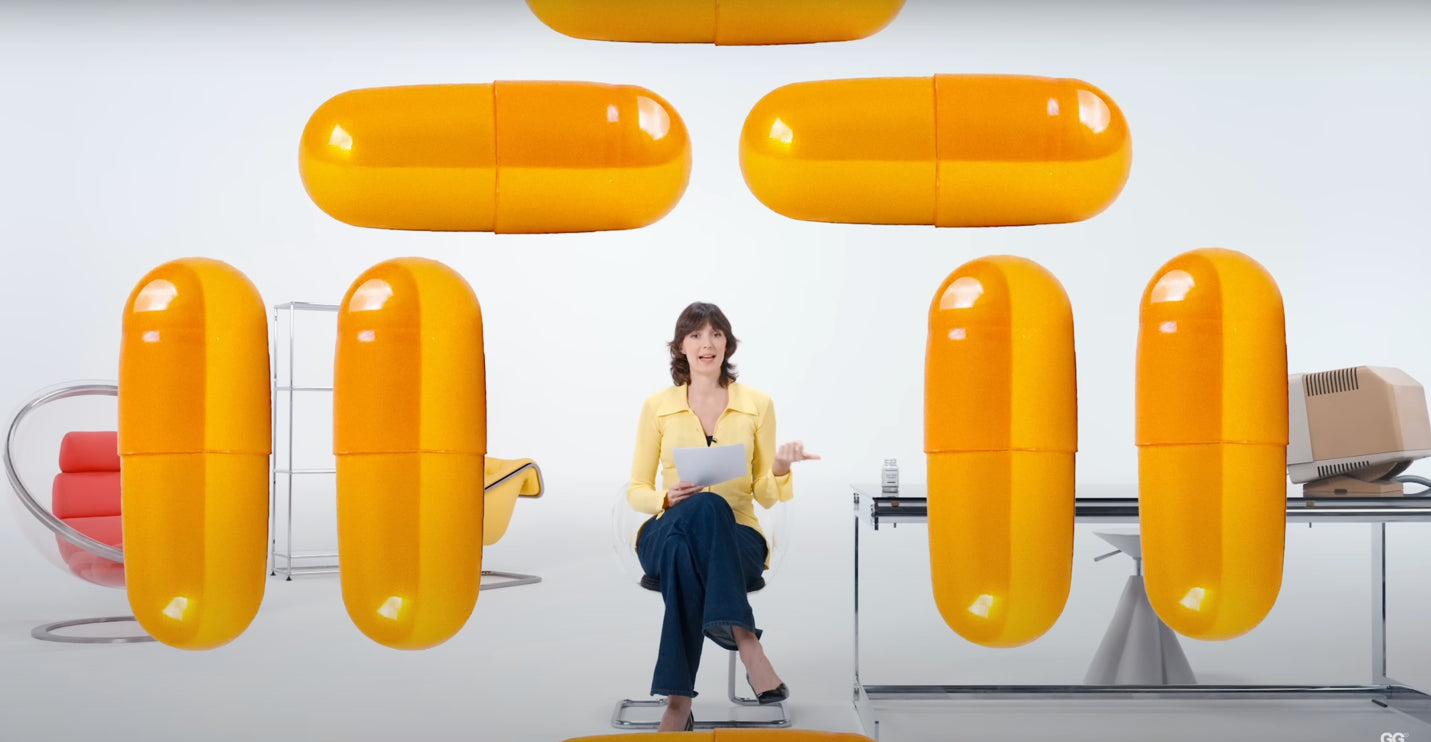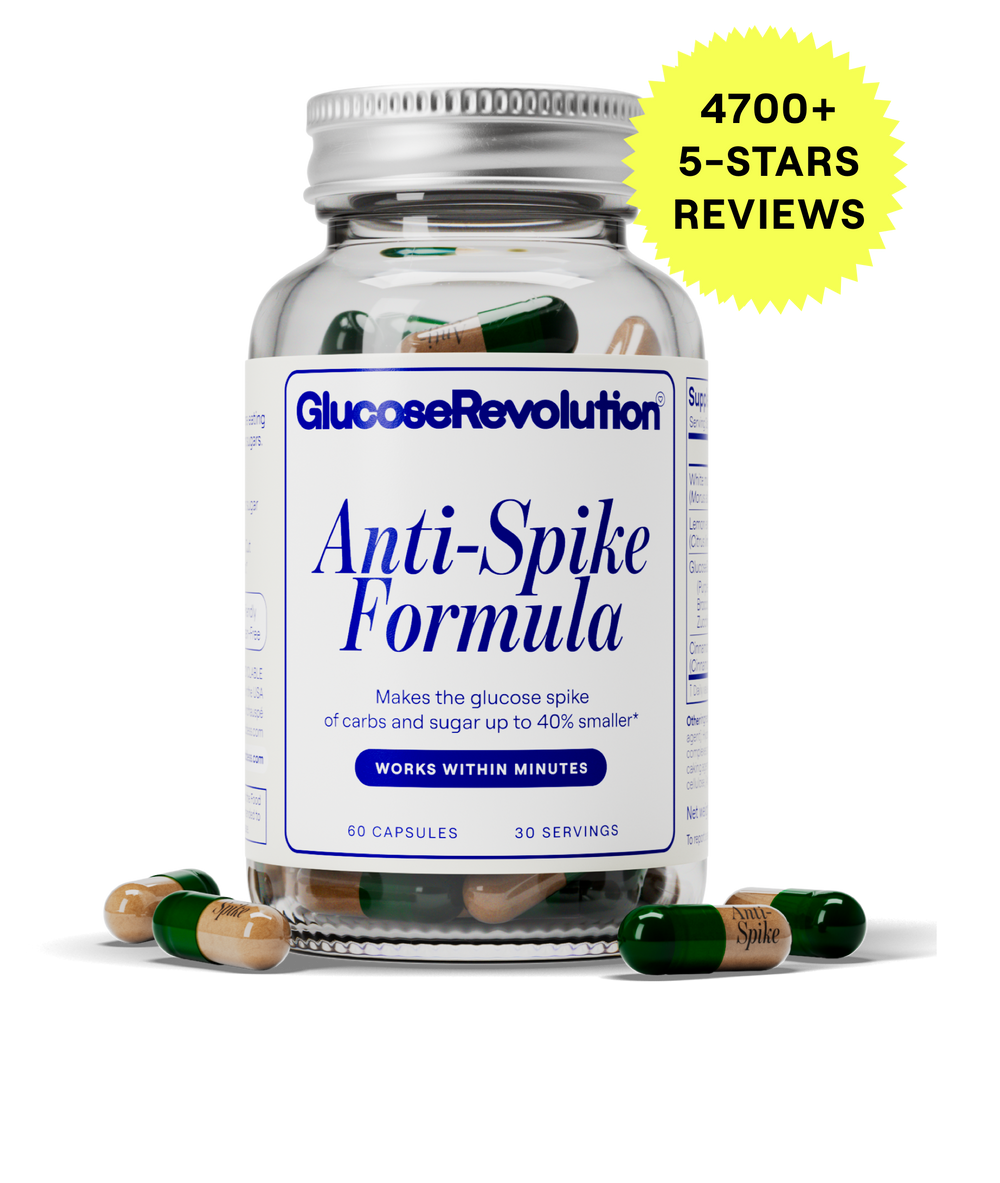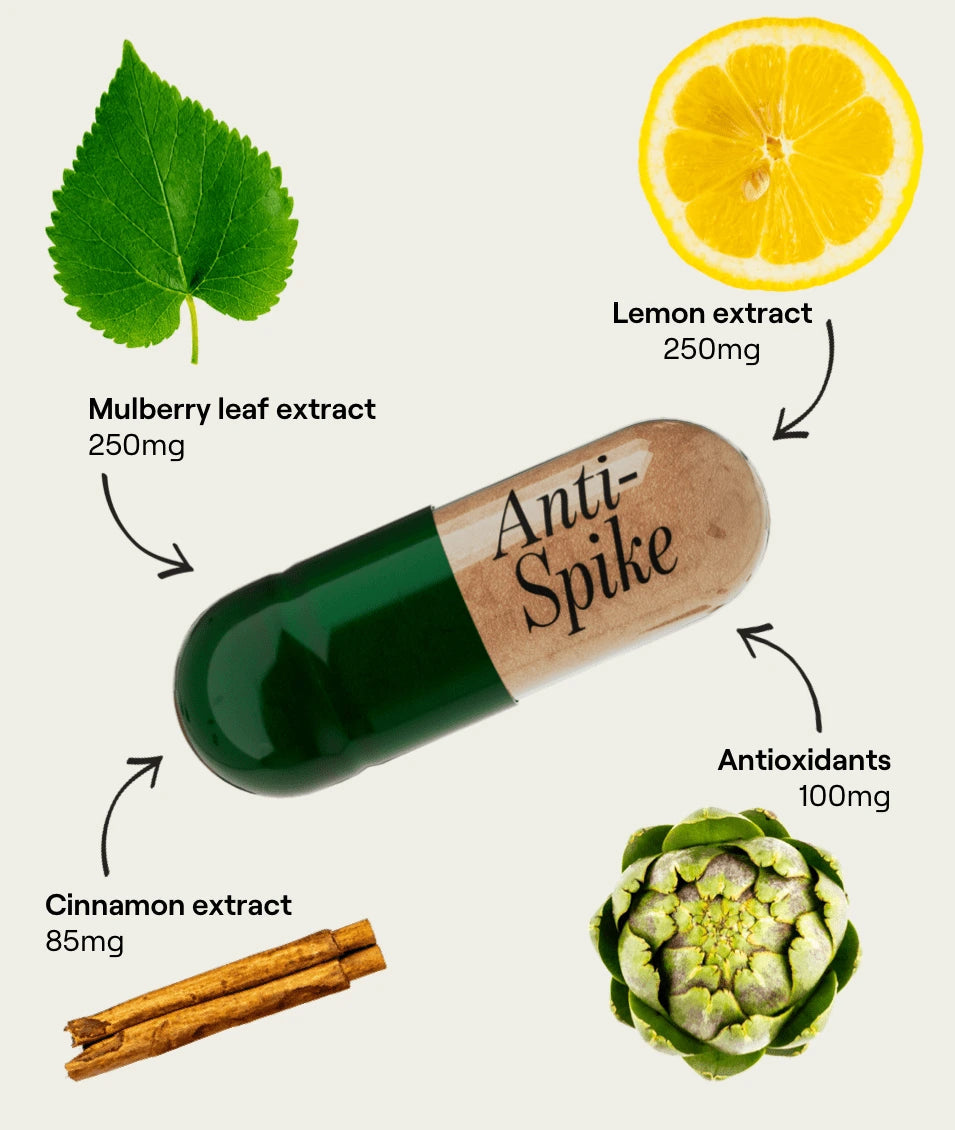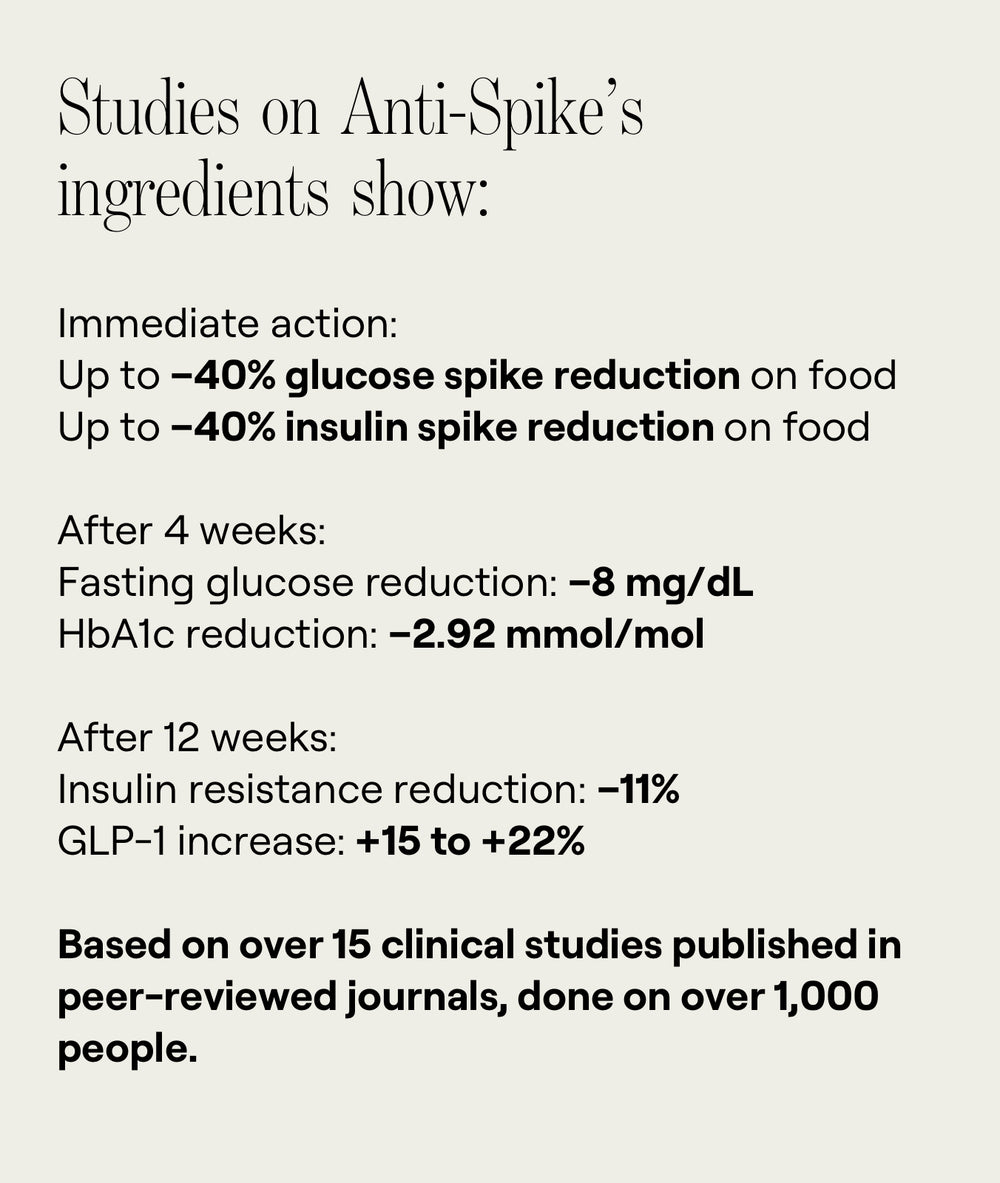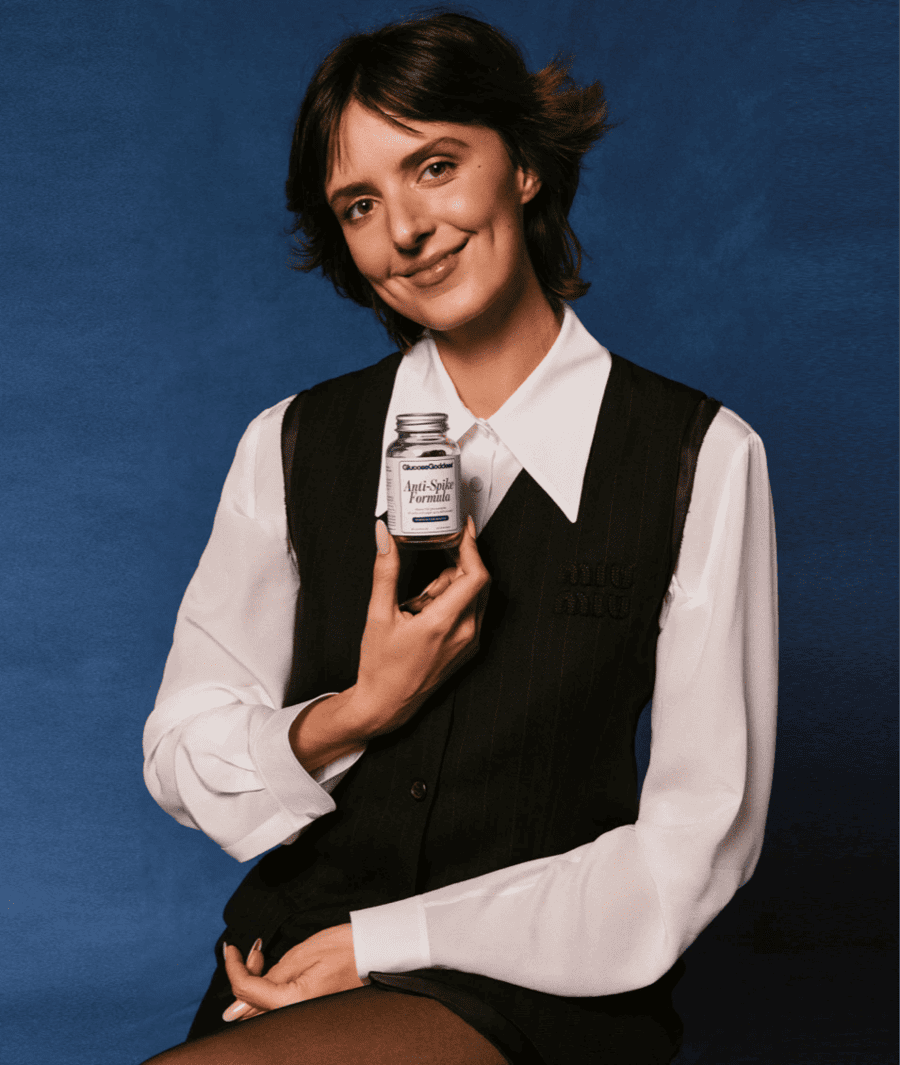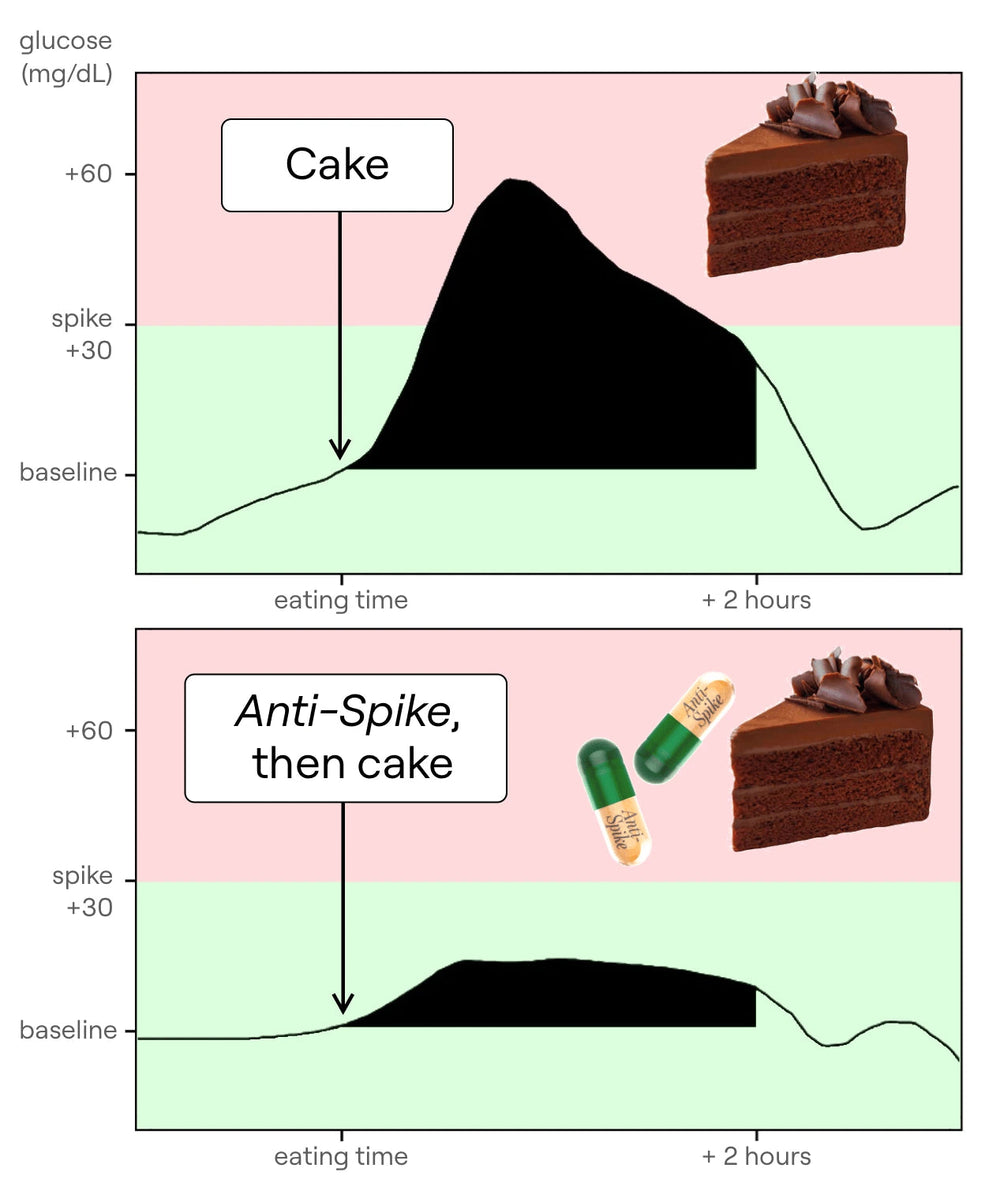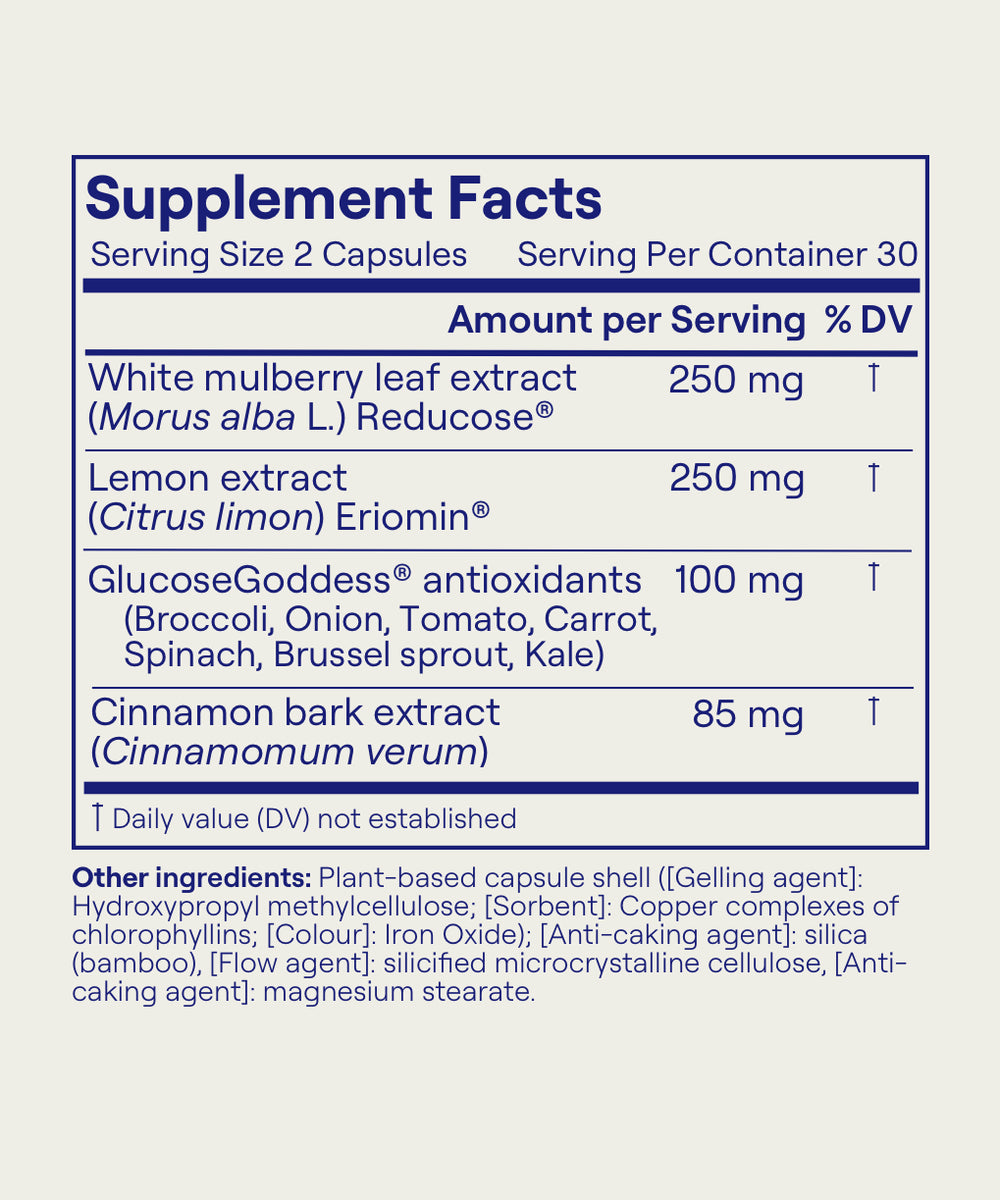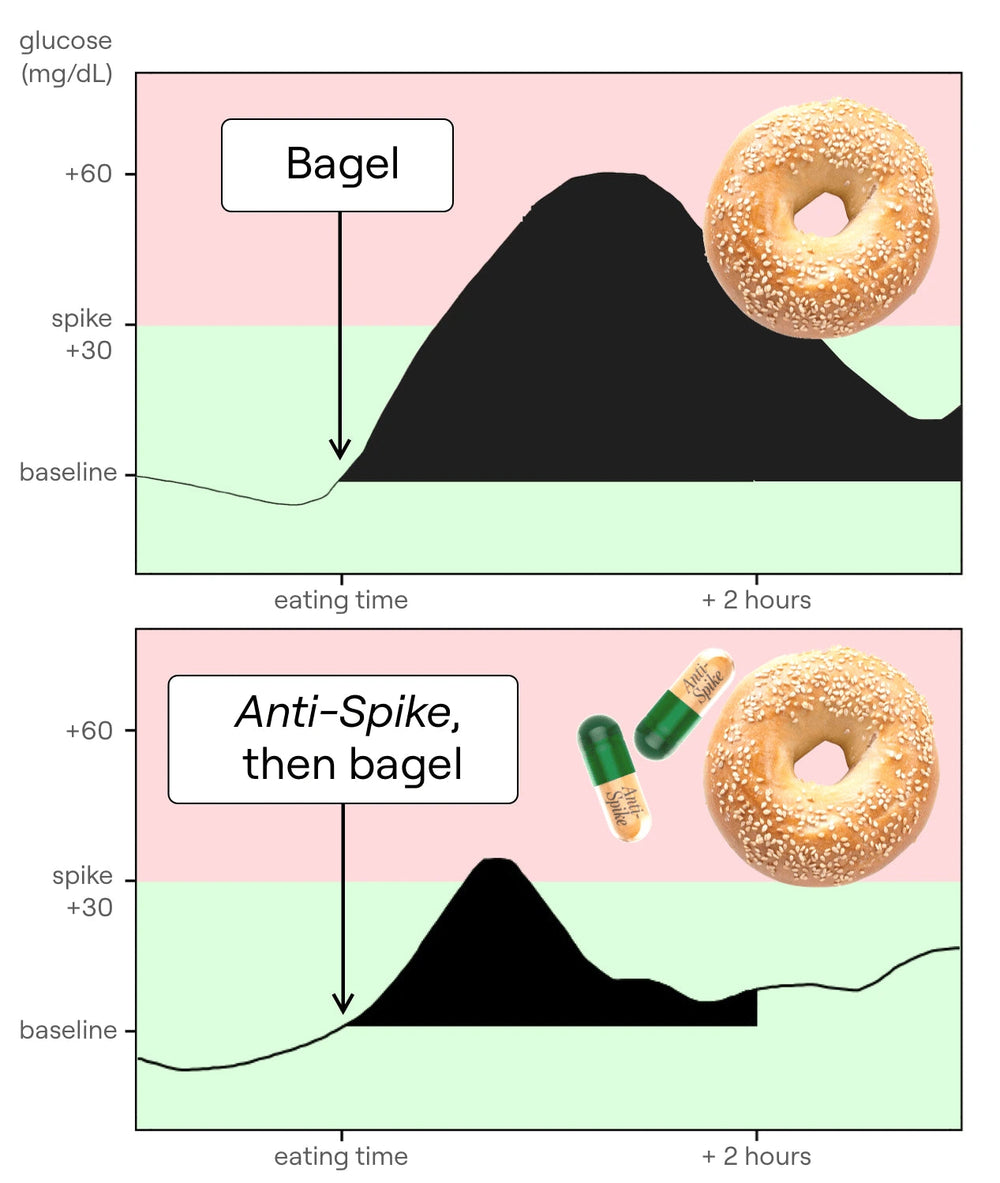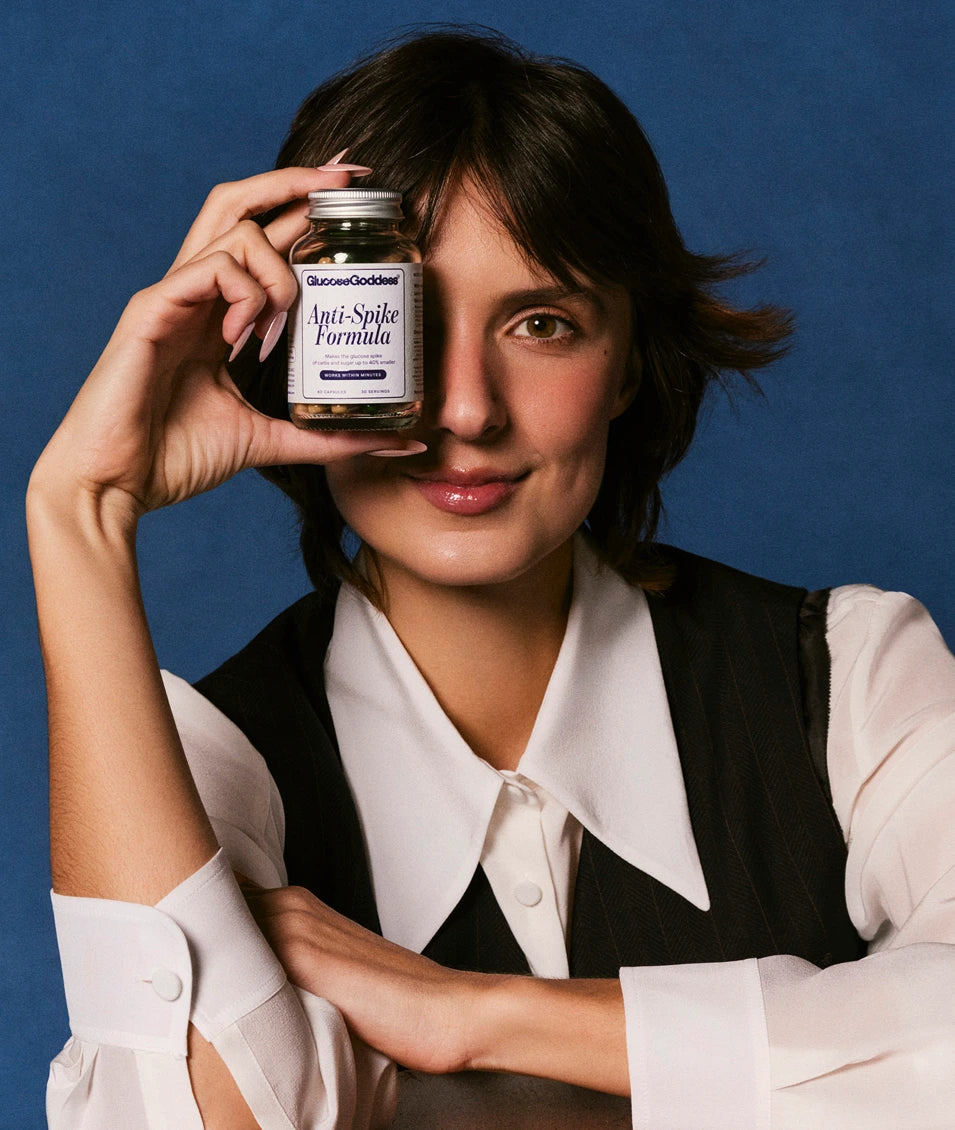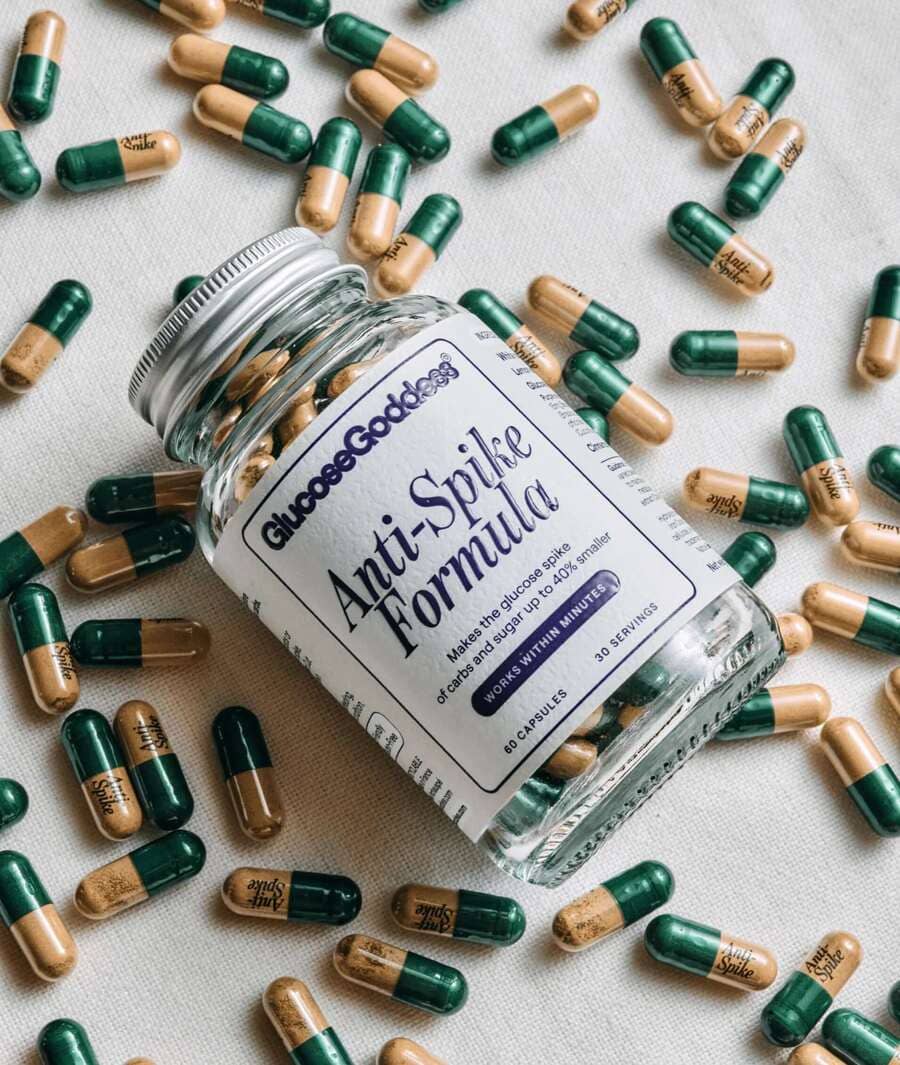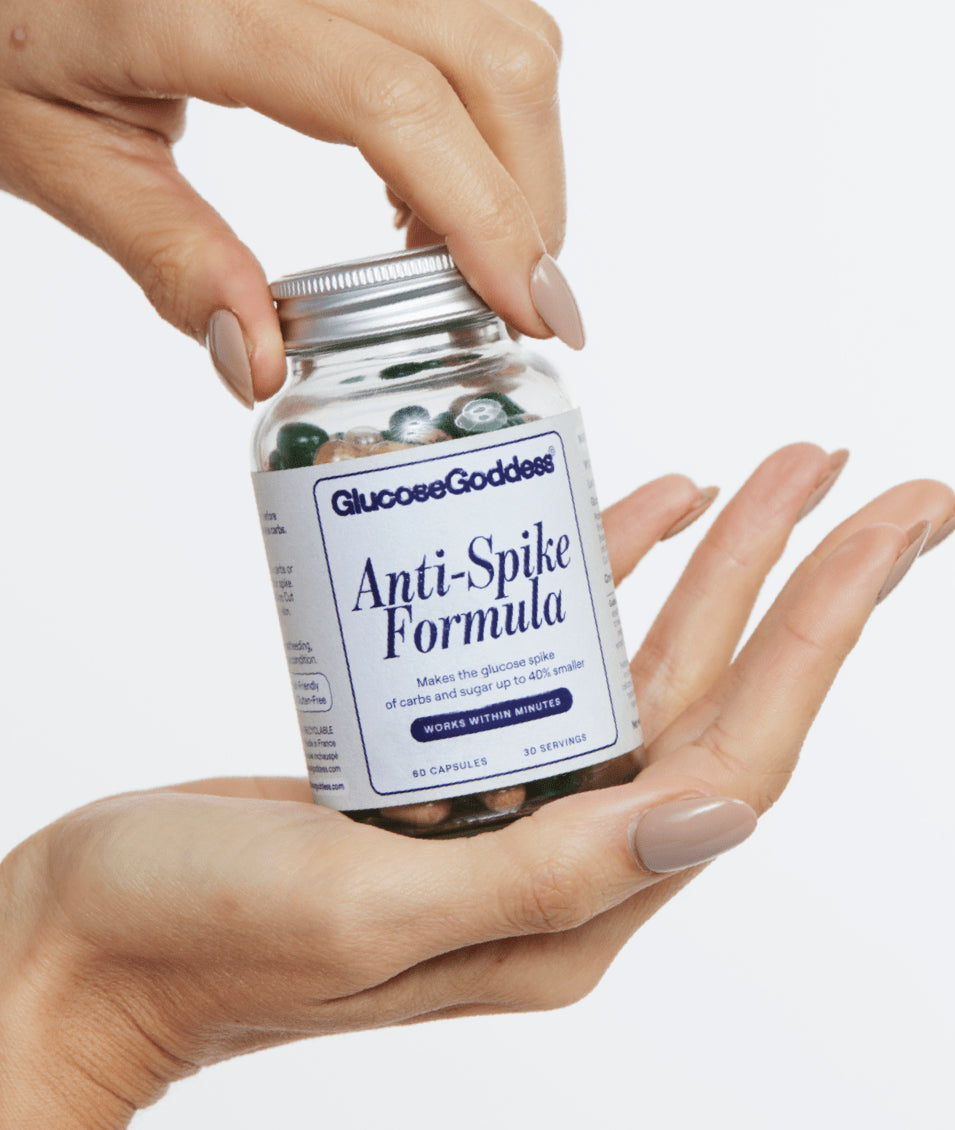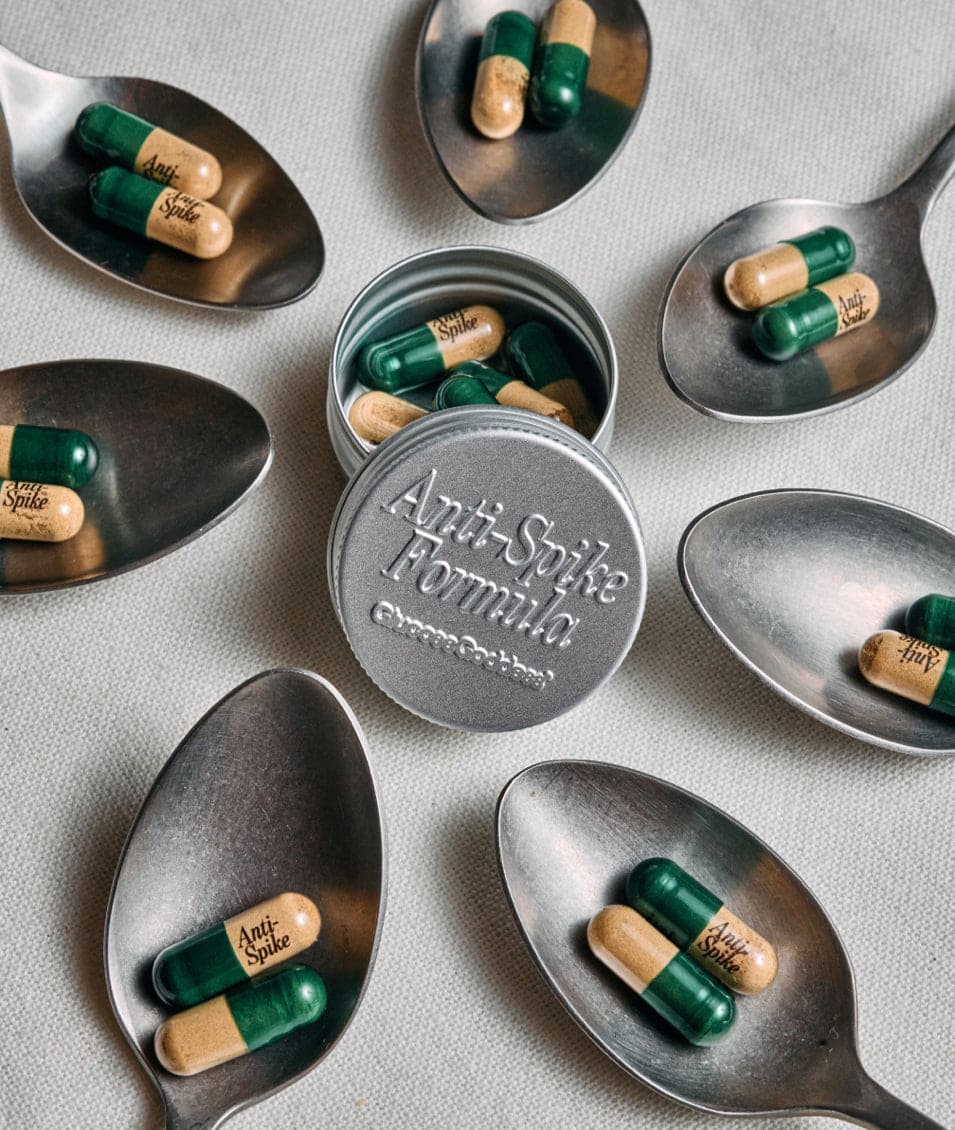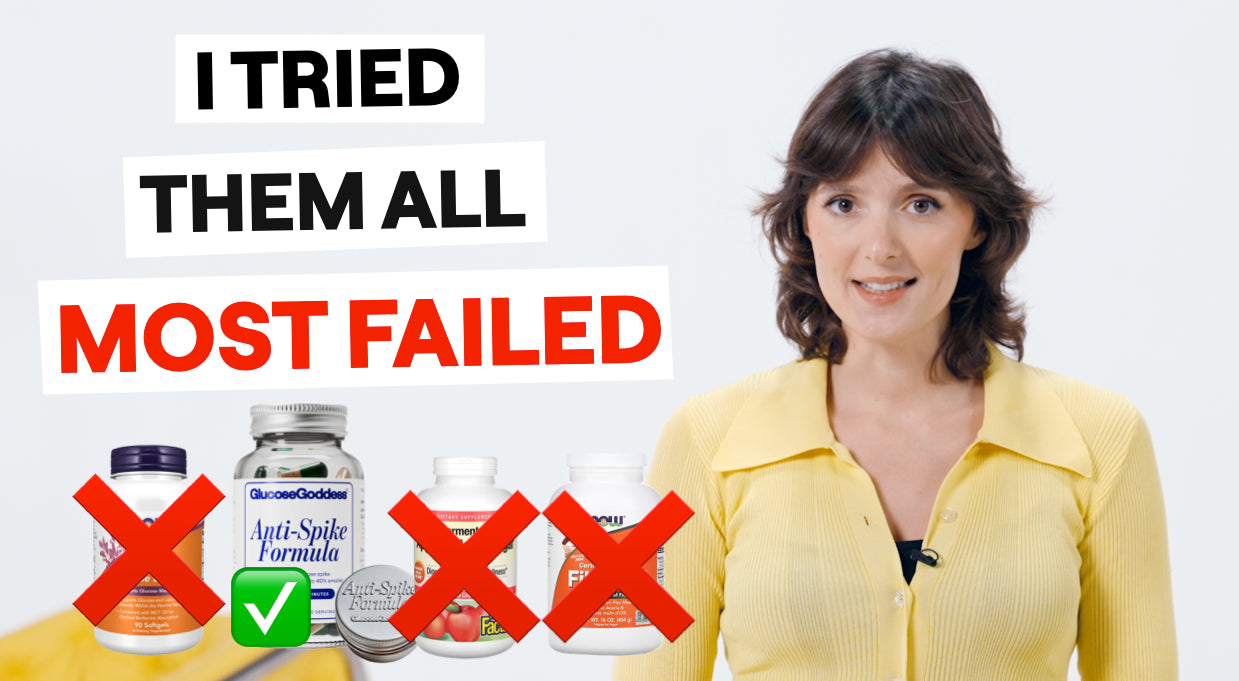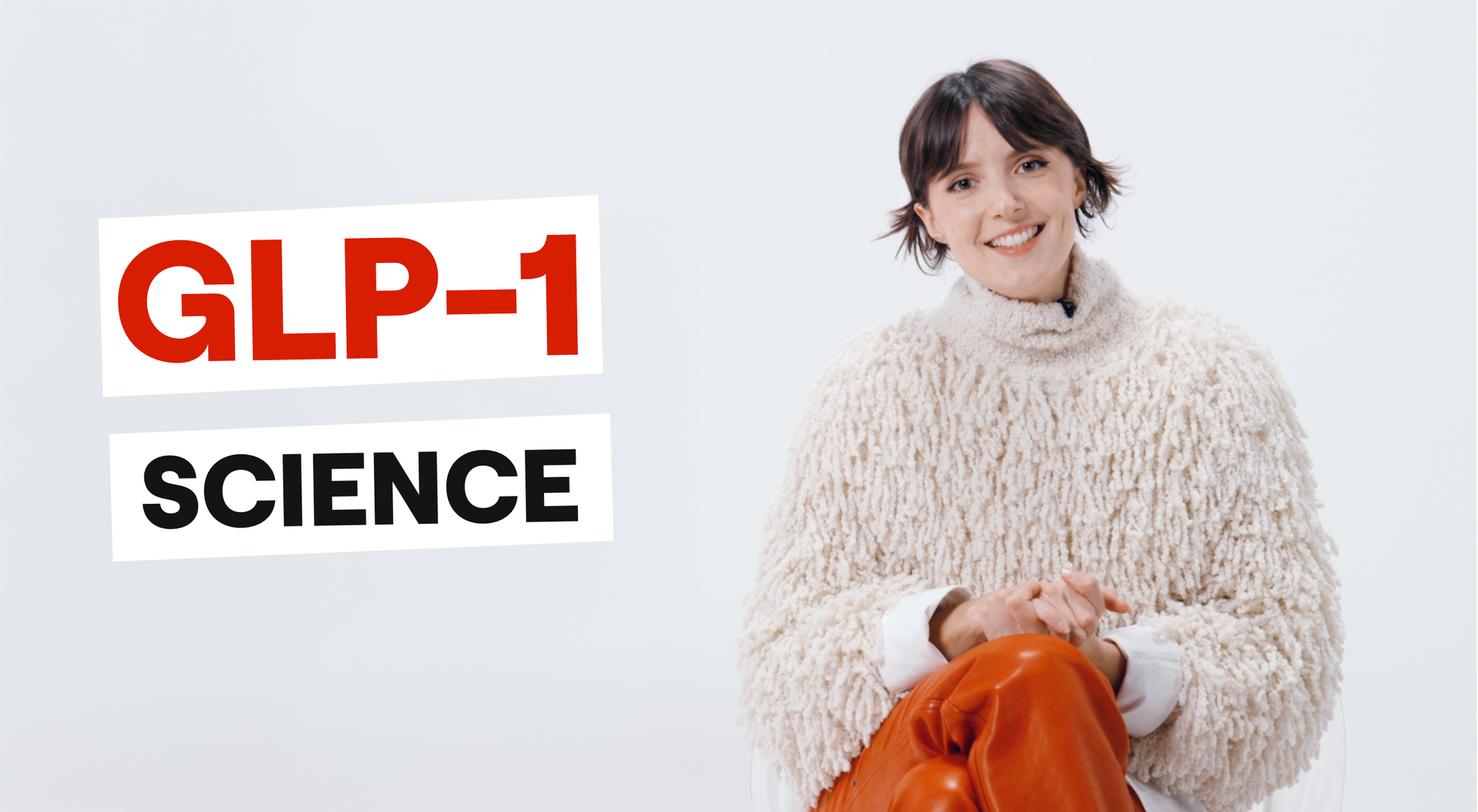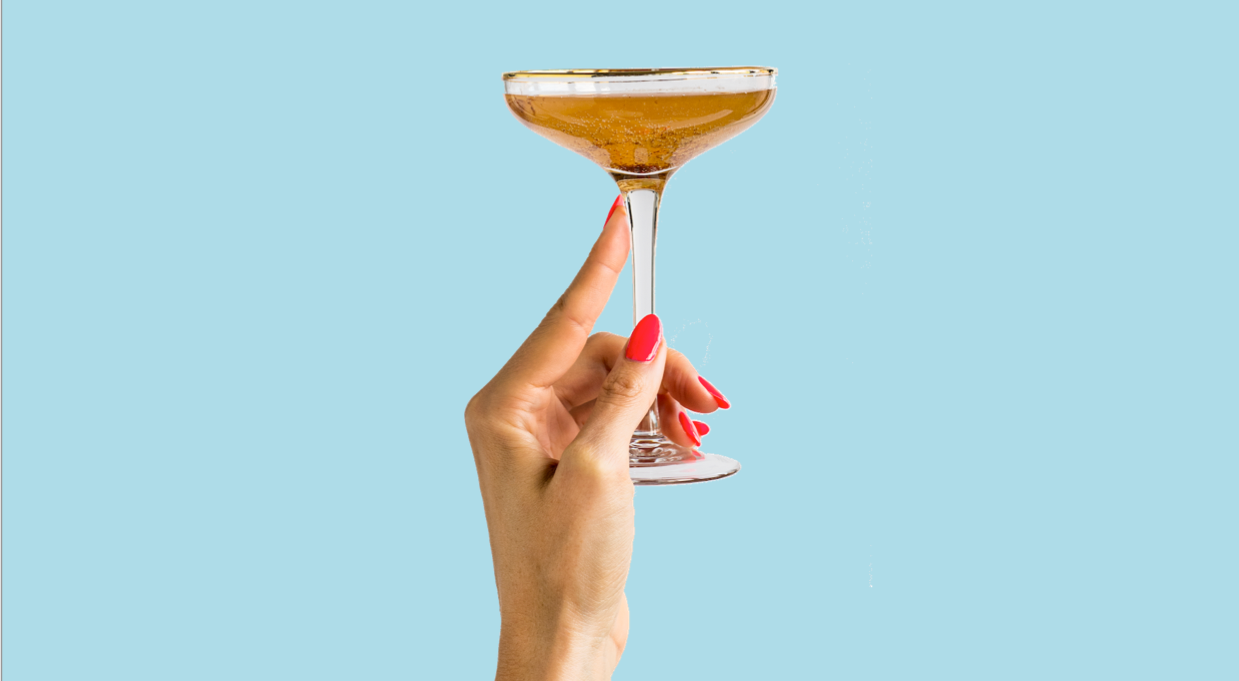SCIENCE EPISODE
My Daily Supplement Routine for Steady Glucose and Better Health
In my book, compared to what I’m about to tell you in a second, I just don’t think it’s the best supplement to take for your glucose levels. To me, it’s not enough effect, there are a lot of drawbacks, and it’s way too many pills. I don’t want to take eight pills a day, so I’m just like, no.
Hello angels and welcome back to the Glucose Goddess Show. My name is Jessie Inchauspé. I’m a French biochemist obsessed with helping you understand your body and your health, and most of my work centers around glucose levels — blood sugar levels.
Over the years, I’ve discovered that glucose spikes can lead to many symptoms and that keeping our glucose levels nice and steady is the foundation of physical and mental health. So today I want to walk you through the science of natural supplements that can — or maybe cannot — help us with our glucose levels. I’m going to show you all the supplements I do not take and why I’ve decided not to take them based on the science, and then I’ll show you the specific supplement stack or formula that I’ve designed and that I take every single day to help my glucose levels. If I could only take one of these supplements for the rest of my life, I’ll show you which one that is. So let’s get into it.
We’re going to go through a few plant molecules that I’ve added to my routine, but before that, I want to talk to you about the things that I do not take and why. One of my core glucose hacks is to have vinegar before eating food, because just a tablespoon of regular vinegar can significantly cut the glucose spike of a meal. Unfortunately, vinegar capsules do not work. A study called “A Comparison of Liquid Vinegar and Commercial Vinegar Pills for Managing Insulin Resistance and Postprandial Glucose Concentrations” showed that while liquid vinegar works, the capsule form does not. It even seemed to make insulin resistance worse when liquid vinegar made it better. This is the main good study we have; it’s not a lot, but the evidence isn’t sufficient to say that vinegar capsules can have the same effect as regular vinegar. So I do not take or recommend vinegar capsules, because the little evidence we do have points to them not working. The vinegar hack only works with regular vinegar. Always dilute it in water before you drink it, or use it on your veggie starter. Second, vinegar gummies — no, don’t take them. Vinegar gummies contain sugar. The popular red ones everyone takes are full of sugar. Not only do we lack evidence that vinegar in non-liquid form works, but these gummies have added sugar that worsens your glucose levels. They’re pure marketing and do not work. For example, a slice of bread on its own versus with vinegar gummies shows no difference — even a slight increase in the glucose spike, which isn’t surprising given that one or two gummies contain about one gram of sugar each. So vinegar capsules and vinegar gummies: best case, they don’t work; worst case, they’re harmful.
Next, fiber pills. One of my hacks is to eat veggies first at a meal — the fiber creates a protective mesh in your intestine, slowing glucose absorption. People often ask if they can just take fiber pills instead. Technically you could, but you’d need a lot to equal a cup of broccoli. For instance, you’d need six psyllium husk capsules before a meal to match one cup of broccoli. If you want to take six capsules of fiber before every meal, up to you — they likely won’t hurt, though they can cause bloating or gas — but it’s not worth it: too many capsules, minimal effect. Next supplement: bitter melon. It’s popular, but a systematic review and meta-analysis called “Effect of Bitter Melon in Patients with Diabetes” found that supplementing for 4 to 12 weeks did not significantly lower HbA1c or blood sugar in people with type 2 diabetes compared to placebo. Another review, “Effectiveness and Safety of Ayurvedic Medicines in Type 2 Diabetes,” found a small improvement — bitter melon reduced HbA1c by 0.3%. That’s minimal. In my opinion, not enough to justify taking it daily. Next: berberine.
Also very popular for glucose. A review called “Efficacy and Safety of Berberine Alone for Several Metabolic Disorders” found that after two months of taking two grams of berberine daily — about eight to ten pills — fasting glucose improved. So berberine works, and it’s cheap, but it has drawbacks. First, you need to take many pills daily (about eight), which is a lot. Second, you have to wait two months to see results — it’s a long game. Third, it has no impact on the glucose spike from a meal — it doesn’t help with immediate spikes, which is what I care about most. And fourth, high doses may cause side effects; agencies like ANSES and EFSA haven’t declared high-dose long-term use completely safe yet and recommend caution. So even though berberine has a good reputation, to me it’s not the best supplement for glucose control — not enough effect, too many pills, too slow.
Now, time to tell you about the two amazing plant molecules that I discovered during this research that I take every single day. The first is mulberry leaf extract — from the leaves of the beautiful mulberry tree — which contains a molecule called DNJ. DNJ interacts with enzymes in your stomach and intestines called alpha-glucosidase, whose job is to break down starches into glucose. DNJ tells those enzymes to “chill out,” slowing how fast starches turn into glucose. This means glucose enters your bloodstream more slowly, reducing the spike — just like my glucose hacks do. With the proper dose of DNJ before a meal, you can cut the glucose absorption of that meal by up to 40%. It doesn’t touch proteins, fats, vitamins, or minerals — only starches and sugars (maltose, sucrose, fructose, lactose).
A study called “Mulberry Leaf Extract Improves Glycemic Response and Insulinemic Response to Sucrose in Healthy Subjects” found that 250 mg of mulberry leaf extract — the clinical dose — reduced both glucose and insulin spikes by up to 40%. This is important because it means glucose drops without causing excess insulin, which can have negative effects. For example, eating a bagel with versus without 250 mg of mulberry leaf extract shows a clear reduction in glucose spike. This molecule is incredibly powerful, much stronger than vinegar, and nothing else provides such immediate effect on meal spikes. Reducing spikes reduces cravings (smaller dips mean fewer urges to eat sugar), improves energy, and reduces inflammation and fatigue. Long term, daily use improves fasting blood glucose, HbA1c, and fasting insulin levels — as shown by the same meta-analysis — an 8 mg/dL reduction in fasting glucose, almost 3 mmol/mol reduction in HbA1c, and a 0.58 µIU/mL drop in fasting insulin. Because of this, mulberry leaf extract is the number one supplement I take every day. It’s one of the two main hero molecules in my supplement, Anti-Spike Formula, which I formulated myself. Each daily dose contains 250 mg of high-quality mulberry leaf extract — the clinical dose shown to work. Anything less won’t work. A common question is, can you just have mulberry leaf tea instead? You can, but a cup of tea won’t provide enough DNJ for the clinical effect. The second plant molecule I take daily comes from lemons — it’s the molecule that makes lemons yellow, called eriocitrin. Eriocitrin acts on the L-cells lining your gut, which sense when you eat and produce a substance called GLP-1, a natural hormone that regulates appetite and glucose. Supplementing with 200 mg of eriocitrin for 3 months increases GLP-1 production by up to 17%. That means fewer cravings, better appetite regulation, and healthier glucose levels, because GLP-1 helps store excess glucose properly. In one randomized controlled study of 100 people with pre-diabetes, 200 mg daily of this lemon molecule reversed pre-diabetes in 24% of participants — fasting glucose dropped from pre-diabetic to healthy range. You can’t get enough eriocitrin from lemon juice — you’d need to drink two liters a day — so supplementation is the only way to reach the clinical dose. This combination of mulberry leaf extract and eriocitrin is, to me, the ultimate duo for both immediate and long-term glucose health. It’s what I take daily — nothing else — and it’s what’s in Anti-Spike Formula: 250 mg of mulberry leaf extract and 250 mg of lemon extract per two capsules a day. Very powerful molecules that work fast on cravings, hunger, energy, bloating, and long-term fasting glucose. I also added a high-potency cinnamon extract equivalent to one gram of cinnamon, which has its own glucose benefits, plus a blend of veggie antioxidants for extra cellular protection. This formula is the only supplement I take every day.
If you want to complement the food hacks I teach (linked in the description — my 10 glucose hacks), this is the only supplement you’ll ever need: two capsules a day, amazing short- and long-term benefits. It gives more powerful long-term results than berberine with far fewer capsules, and immediate reduction in meal spikes. When I first found this science, I got so excited. I’ve never liked taking lots of pills; I’ve always been food-first, and you should be too. But if you want a supplement to help you — if the food hacks are too hard or you want faster results — this is for you.
So, in conclusion, now you know the supplements I take every day: just two capsules of Anti-Spike before my biggest meal. I don’t take bitter melon, berberine, or vinegar capsules because they’re not the most effective. The most powerful are mulberry leaf extract and the lemon polyphenol — together they’re a super-couple.
Anti-Spike has helped me personally with bloating, staying full longer, and completely eliminating random sugar cravings. It’s been a super powerful ally, and I’m really proud of it. I hope you get to try it and love it too, because it’s truly amazing.
To close off this episode, I’ll leave you with testimonials from people in the community who’ve tried Anti-Spike. If you want to see thousands more, go to anti-spike.com or click the link in the episode description to see the science, clinical trials, and real reviews.
Thank you for watching — I’ll see you next time. This amazing formula is the real deal. Anti-Spike has truly changed my life for the better: I no longer have sugar cravings, I have fewer mood swings, I don’t feel hungry every two hours, my bloating is gone, my sleep is better, and it’s become a great part of my daily routine — from 8.0 to 5.2 with Anti-Spike.
 Anti-Spike Supplement
Anti-Spike Supplement
 The Recipe Club
The Recipe Club
 Course
Course
 50 Breakfast Recipes
50 Breakfast Recipes
 50 Veggie Starter Recipes
50 Veggie Starter Recipes
 20 Vegan Recipes
20 Vegan Recipes
 20 Gluten-Free Recipes
20 Gluten-Free Recipes
 The 10 Glucose Hacks
The 10 Glucose Hacks
 Vinegar
Vinegar
 Alcohol
Alcohol
 Fasting
Fasting
 GLP-1
GLP-1
 What to Eat Before & After Exercise
What to Eat Before & After Exercise
 Protein
Protein
 PCOS
PCOS
 Menopause
Menopause
 My MRI Story
My MRI Story
 Breakfast
Breakfast
 Supplements
Supplements
 Clothes on Carbs
Clothes on Carbs
 Eggs & Cholesterol
Eggs & Cholesterol
 Chocolate
Chocolate
 Food Labels
Food Labels
 Veggie Starters
Veggie Starters
 Move After Eating
Move After Eating
 Why Glucose Matters
Why Glucose Matters
 Glucose Revolution
Glucose Revolution
 The Glucose Goddess Method
The Glucose Goddess Method
 9 Months That Count Forever
9 Months That Count Forever

